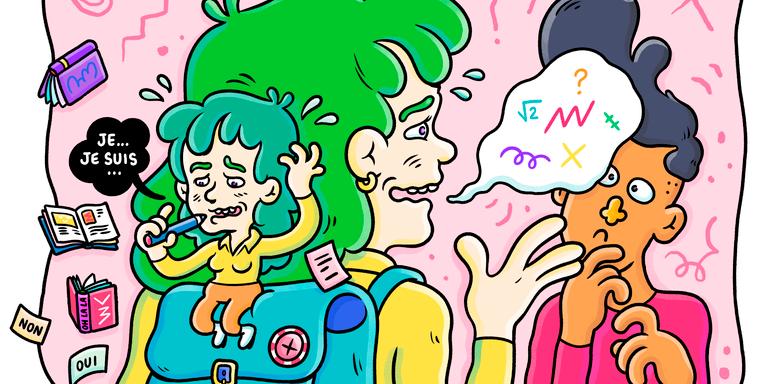


A New Yorker's conquest of the French language
Long Read'The US, France and me' (2/5). Pamela Druckerman, an American journalist who has lived in Paris for almost 20 years, has never fully mastered the French language. The language – and its speakers – can be intimidating.
I recently took my teenage son to a medical appointment in Paris. The doctor examined him, then presented an analysis of his health. Or at least I think he did. The man was mumbling and wearing a mask. Without crisp pronunciation and some lip reading, I could only half-grasp his points.
On the way home I casually asked my son: "What would you say the main takeaways were?" He's a native French speaker and had understood everything.
When I moved to Paris in 2004, I considered myself a "language" person. I'd acquired decent Spanish growing up Miami (now 72% Hispanic), then workable Portuguese and – for a brief period – rudimentary Japanese.
I figured French would come quickly. The US State Department classifies it as a category-one language for Anglophones – its easiest ranking – in part because there are thousands of exact cognates and similar words (a hypocondriaque is a hypochondriac).
But after nearly 20 years in Paris, I still haven't conquered French. Everyday interactions are fine, but my son recently pointed out that I make a grammatical mistake in every sentence. When I try to recount even the simplest anecdote, I sense that the listener wants to flee. When a French person asks me the dreaded question – How long have you lived here – I reply with the smallest credible number of years.
How is it that, after nearly two decades, I've failed to fully metabolize the local language? Countless foreigners also struggle to learn French in adulthood. It's especially difficult for those who don't come from Francophone countries or who aren't native speakers of a romance language. We manage daily life, but we're forever limited and excluded, seeking out friends in our home language, and never feeling fully ourselves in the "language of Molière."
'Joli accent'
Is it French? Is it me?
In my defense, I've tried. Over the years I've attended conversation exchanges, a weeklong immersion course near Avignon and intensive B-1 training at the Alliance Française. I can write emails, read newspapers and become absorbed in plainly written French books.
At least I've surpassed my mother's friend who moved to Panama and – instead of learning the past tense – would say in Spanish, "I go to the movies, pasado." Locals politely praise my "joli accent" and promise that even native speakers make mistakes.
But situations I've avoided, lest they expose my atrocious grammar and mistaken genders, include presenting my job at the school "career day," calling insurers about a slow-leak in my toilet, and accusing a surgeon of medical malpractice.
You have 69.09% of this article left to read. The rest is for subscribers only.
